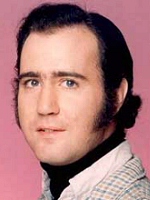
#4 The Silver Jews, American Water (Drag City, 1998)
Well, nearly six months after I wrote #5, and over two months since anyone’s posted at all, I’ve finally decided that I can’t let this project die. Maybe my top 4 will fall in the forest with no one around, but at least I’m not a quitter.
I was initially going to say that American Water is country music for an alternate universe. I think it’s more accurate, though, if only slightly less banal, to say that this album is country music for an alternate universe that we just happen to live in. It’s frequently and bizarrely hilarious (I listened to this record for all of about 10 seconds, just enough to hear David Berman sing “In 1984, I was hospitalized for approaching perfection” on “Random Rules”, before I decided to buy it – see also the couplet from “Send in the Clouds” at the title of this post). Berman’s lyrics also reveal a darkly insightful edge to his (and our) comic world. This is best exemplified in “Smith and Jones Forever,” which I hear as the standout track. “Smith and Jones” draws a picture of the vast America that holds up and hides underneath our more comfortable world. Now, we’ve all seen things like the shirtless guy on Cops, so we can see our selves laugh at the obvious and pathetic humor in lines like “they sat there with their hooks in the water and their mustaches caked with airplane glue,” and “come let us adore them, California overboard, when the sun sets on the ghetto, all the broken stuff gets cold.” But while still witty, the next verse’s “the alleys are the footnotes of the avenues,” also contains a grimmer truth. The most moving part of the song for me, though, comes in the final verse, where, accompanied by a muted bass line and barely audible and chaotic guitar notes, Berman begins a story: “got two tickets for a midnight execution, we hitchhike our way from Odessa to Houston.” More voyeurism of the underclass spectacle – an occasion for gothic carnivalesque adventure (tickets and hitchhiking). The next line, though, repeats the phrase, “and when they turn on the chair, something’s added to the air” at which point the snare and guitar drop back in for the word: “…forever.” Something’s added to the air, forever. That final shock of a word shoots through the humor, not negating it, but yet reminding us how the things we want to laugh at and to repress never fully go away when we want them to.
All right. I meant to keep this short. I also want to observe that while it seems wrong to say so, this album is my favorite project that Stephen Malkmus has been involved in. On to #3…
![]()

![]()

![]()

![]()

![]()
